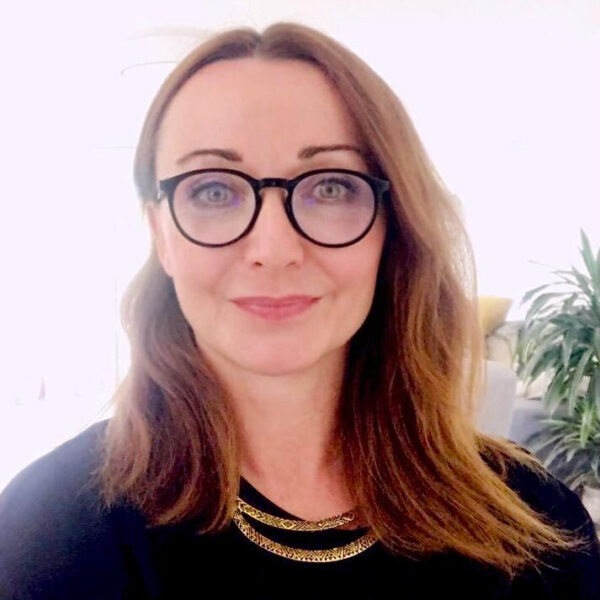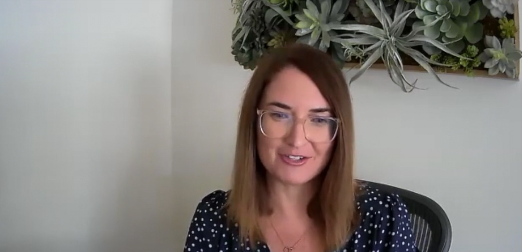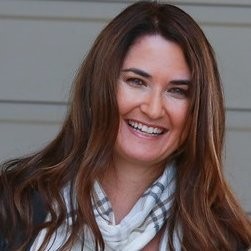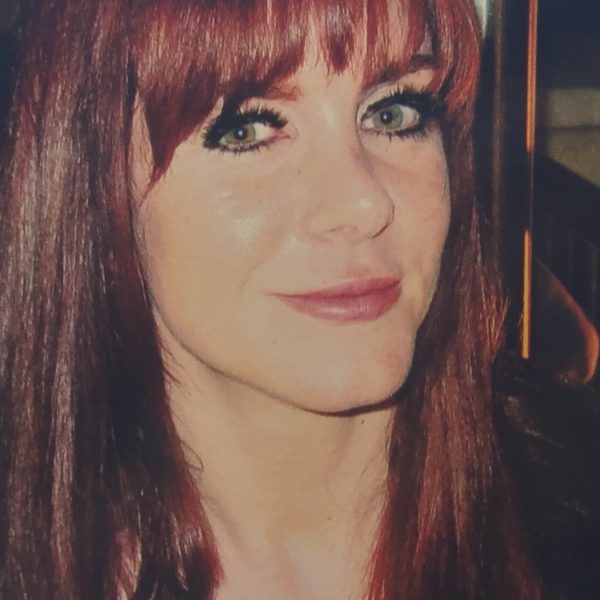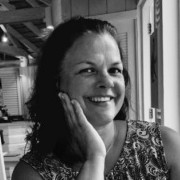Episode 156: Jacqueline Menzel on Enhancing Resilience in a Virtual Environment
2.8K Views | 13 Min Read
Shawnna Sumaoang: Hi, and welcome to the Sales Enablement PRO podcast, I’m Shawnna Sumaoang. Sales enablement is a constantly evolving space, and we’re here to help professionals stay up to date on the latest trends and best practices so that they can be more effective in their jobs.
Today, I’m excited have Jacqueline from Splunk join us. Jacqueline, I’d love for you to introduce yourself, your role, and your organization to our audience.
Jacqueline Menzel: Great, thank you for having me. Yes, I am Jacqueline Menzel, and I make a living as a Regional Sales Enablement Manager at Splunk. I live in Munich, near the beautiful mountains, and I work from home like most of us have been for over a year now.
Initially, I was born in Eastern Germany and I was once a refugee from East to West Germany. I can tell you that this background has basically influenced my personality significantly. As for me as a person, I think the biggest part of my DNA is natural curiosity and the desire to support people. It’s helping people to become a better version of who they are already. With that DNA, I decided a while ago to move into a self-supporting role, helping sellers to get what’s needed to sell successfully, make more money, and to do this as fast as possible and as individually impacting as possible.
SS: Well, thank you so much for joining us today. I’m very excited to have the opportunity to talk to you. You actually recently wrote an article that caught my attention about your experience working from South Africa for a few months and your outlook on the home office of the future, which I think a lot of us are currently experiencing given the past year.
With your experience helping salespeople adjust and onboard in virtual environments this past year, what are some of your key learnings about the shift to virtual work and the impact that can have on productivity?
JM: Oh, yes. Virtual work has changed all of our lives, not only for sellers, but also for their customers. I think there lays the trigger for working successfully from home or anywhere. I think realizing that most of us work remotely and once we understand that this is what we do right now, we know that we’re not alone in this.
My personal experience with that in Africa, and by the way, due to COVID travel restrictions, it was not at all voluntary and it took you guys a while to get me here online, but I can just tell you it was a life-changing experience. It not only changed my role as such, but also my way of thinking about remote work.
It does reflect the new normal and also the possibilities we can get from it alongside the adjusted work style, the working hours, but also the lack of social contacts. Also working, and yes, even selling from anywhere, onboarding new people into a virtual world with most of them coming from a virtual world already, and keeping our own work-life balance healthy hopefully. Self-designed level has such a high impact on productivity and is still such a challenge. Even one year later, we are still, or even more than ever, struggling with it. How can one assure that knowledge is shared virtually? How can we make the whole thing have a lasting effect? How can you bring leadership to fly the plane with you since so many people are working more and harder, and since the age of Zoom or Teams or Google Hangouts has changed this world?
Let me look at it from two aspects. Employers and employees need to start to look at the give and the take. For example, my employer allows me to work from anywhere. I have the commitment that they support me during the pandemic, and even give me some extra time off or take leave when I need it because of the pandemic.
In return, I give back by being more flexible, healthier, and also happier. As an employee, think of how to best serve your customers these days, or how to generate big revenue. Think of how I can still have small talks when I meet my customers virtually? How can I start building sustaining relationships without social contact? How can I still perform good discovery and uncover the purpose of what I’m doing, what I want to sell to the person on the other side of the screen?
As a seller today, you need to learn the basics, like how to run virtual meetings. It’s not at all self-speaking. How do you engage? How do you demo or even whiteboard virtually while holding your coffee cup? Some people say, “Oh, it’s so easy we’ve done this for a year,” but I can tell you, this is such a transformational ask for some people. Working in a remote environment, selling remotely, will either lead to good or poor productivity.
SS: Absolutely. Now, I also want to understand, because obviously you’ve traveled the world and your focus is really around being able to tailor enablement programs for all of the different regions that you support.
In a similar vein I’d love to understand, what are your best practices for delivering tailored enablement programs at scale, but also how has that been impacted as you’ve had to shift everything to virtual?
JM: That’s a very good question. Let’s start with definition with the definition of tailoring. Tailoring simply means to take something existing, something like global programs (we don’t need to reinvent the wheel these days), and now you have to put some flavor like culture length, timing, or even essential needs the region has to it.
I think one need to keep in mind is that some content does not even land with every learner, especially when you think about cultural or language differences. I think that the most challenging part is really what you asked me about scaling. Scaling is a masterpiece here, so you need to make sure that you promote your work and find code delivering supporters. For example, your sales leaders. The virtual shift, I believe, is probably the hardest part. Take what you have, and almost reassign it into virtual workshops, virtual programs, and even adjust the metrics to measure success.
What does it take to bring something tailored into a virtual environment? I think the most challenging part is feeling you need to have clear outlines. What is the virtual deliver designed for?
Great planning. It is super important to have a solid timeline and agenda to your programs. You need to make sure you understand the resources you are going to replace today. There’s no more training in front of a class, it’s all virtual. Think about giving your learners homework and have them start it and prepare it for your session. Embed practical exercises to mold muscle memory. It takes seven times to stick to our brains, but how about practicing it? Most of all, the ownership of the sales leadership. I mentioned earlier that you need to have co-pilots to drive programs. Having sales leadership help you own those programs with clear metrics to measure your and their success will help you in the short and long term.
What I personally tend to forget, collect feedback from the receiver, the learners. That also helps me and even the people who co-deliver with me to improve the learning experience.
SS: That’s fantastic. Now, one thing that I noticed recently is that you were awarded an award for collaboration. I’d love to learn more about that award and what your best practices are because collaboration is so important, especially across all the stakeholders and cross-functional partners that you work with in enablement. What are some of the best practices for ensuring strong collaboration with stakeholders, especially in a virtual environment?
JM: Yeah. I have a saying, “collaboration is sharing, and sharing is caring.” Here comes my DNA into play. I love helping people and I think it’s very simple. First, think of what you have, what you get, or what you come across along your way. May it be know-how, a nice read, a piece of great work, whatever. Who else can make use of it?
Secondly, you need to know your stakeholders and their ecosystem. Who do you want to work with? Who do you want to collaborate with?
Thirdly, ways to share and collaborate using the tools you have at work and even outside of your work. What are the tools you’re using? I think last but not least, just be curious, nurture your relationships, make yourself relevant to them. Most importantly, always keep in touch with your stakeholders today and in the future.
SS: Absolutely. Now, I want to pivot a little bit because, in addition to collaboration, one of your passions is networking.
How do you leverage networking to not only enhance that internal collaboration, but also your external professional development?
JM: Yeah, that’s a great question too. Collaboration for me is simply networking and networking is collaboration, one doesn’t exist without the other one. You probably know that generally speaking, your career progresses because of 10% knowledge, 30% self-promotion, and 60% networking. If I would talk in a biased world, I think the male proportion of sales enablement leaders, or even sales leaders, do this so much better than we females do.
I do share and collaborate outside of my network, the same principle as described earlier. What’s important here is to think long-term. If you share something outside, you do help people outside of your organization or your personal life. If you think about it, they met may act as your multiplier. If you share today, they will benefit from it today, but they will also remember you in the future, and either help you to develop or share some golden nuggets.
If you put this into perspective of the sales world today, I think it’s super simple. People buy from people. If you share stuff with your customers, if you acknowledge the relationship, and if you keep networking with them today, with your employer in the future, with other companies you work for, you’re going to be super successful.
SS: I absolutely agree. Now, in your professional development, you mentioned the importance of having a growth mindset.
My last question for you is, as a sales enablement leader, how do you also foster the concept of a growth mindset amongst the sales teams to really help motivate new learning skills amongst the field teams?
JM: Yeah, let’s start with the definition. What is a growth mindset? Behind a growth mindset simply sits the idea that, let’s say with some efforts, is it possible to increase your talents, your learned, and even your forgotten skills and abilities. I would add authenticity to it. Who are you and what are you proud of? What makes you remarkable? By the way, what makes you remarkable or makes me remarkable is a great Google initiative. If you want to look that up, please do so.
When you look into sales teams today, you always find different mindsets, different skill levels, and even resistance, but also resilience for lifelong learning. Or as our Splunk CEO, Doug Merritt says, relentless learning.
That brings me back to the tailoring aspect and the simple frame around the why. What’s in it for them? Why have a growth mindset? Every enablement you deliver, every know-how transfer you deliver today, needs to start with a frame. Why are you getting this? What’s in it for you? As a result of today, or at the end of the workshop, what will you be able to do? Having a growth mindset is essential for lifelong success.
SS: I love the notion of resilience learning; I think that’s fantastic. Jacqueline, thank you so much for joining us today. I learned so much from you, thank you.
JM: You’re welcome. Thanks for having me.
SS: To our audience, thanks for listening. For more insights, tips, and expertise from sales enablement leaders, visit salesenablement.pro. If there’s something you’d like to share or a topic you’d like to learn more about, please let us know. We’d love to hear from you.

